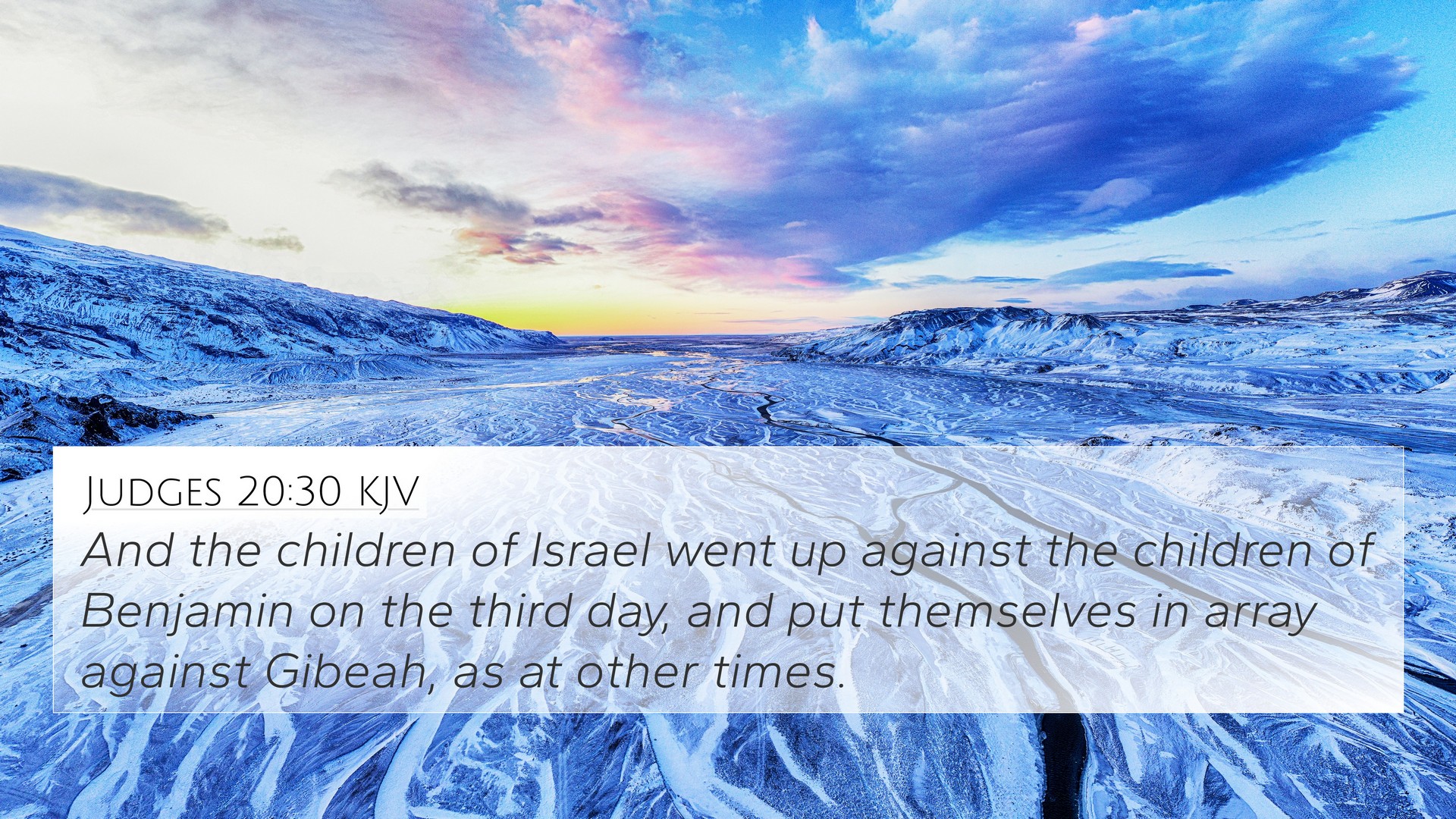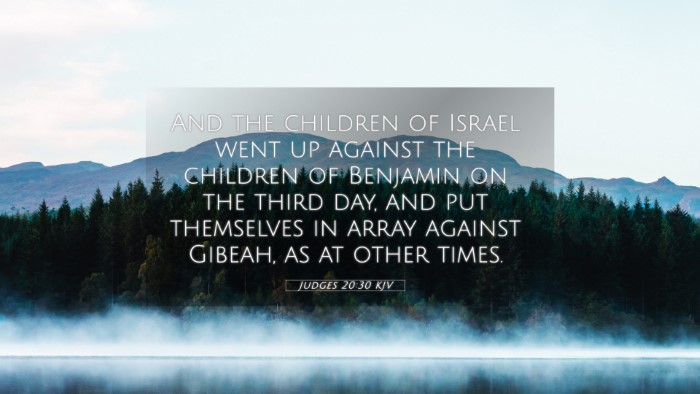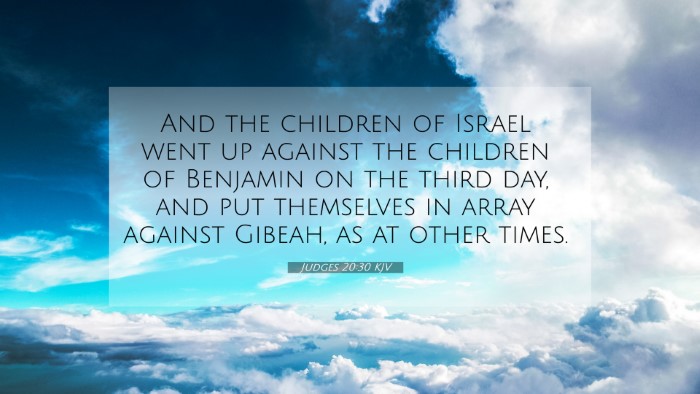Understanding Judges 20:30
Judges 20:30 states:
"And the children of Israel went up against the children of Benjamin on the third day, and put themselves in array against Gibeah, as at other times."
Context and Background
This verse occurs within a narrative describing a civil conflict among the tribes of Israel, particularly focusing on the tribe of Benjamin. The context reflects the gravity of the conflict and the determination of the Israelites to confront their fellow tribesmen over issues of sin and injustice that had arisen in the city of Gibeah.
Commentary Insights
Matthew Henry's Commentary
Matthew Henry emphasizes the ill-fated situation that led to this battle. He notes that the Israelites were compelled to unite against a brother tribe due to grievous sins committed by some individuals from Benjamin. The phrase "as at other times" indicates that this was a highly strategic military maneuver, suggesting a pattern of engagement that the Israelites had followed in prior confrontations.
Albert Barnes' Notes
Albert Barnes elaborates on the strategic significance of the third day mentioned in the verse. He points out that this moment underscores the persistence of the Israelites in seeking justice, illustrating their commitment to rectifying the wrongdoing. The reference to "array" signifies a formal military formation, reflecting the serious nature of their intentions.
Adam Clarke's Commentary
Adam Clarke highlights the moral implications of this conflict. He observes that such internal strife serves as a warning against communal sin and the consequences it bears on kinship. Clarke's analysis suggests that the battle initiated a deeper reflection on the communal and individual responsibilities within the Israelite community.
Significance of the Verse
The tactical assembly of Israel upon Gibeah signifies not only a physical confrontation but also a moral reckoning. The Israelites' united front raises poignant questions regarding justice, loyalty, and the extent to which one will go to uphold righteousness among their community.
Cross-References and Thematic Connections
Judges 20:30 can be linked with various other scripture passages to enrich understanding:
- Deuteronomy 13:12-16: Addresses the punishment for city-wide sin, which reflects the intent behind the Israelite's actions in Judges.
- 1 Samuel 11:7: Relates to the assembly of the Israelites for a battle, showing communal engagement against a common foe.
- Luke 14:31: Discusses the wisdom of military preparations, highlighting strategic planning similar to what the Israelites undertook.
- Romans 12:9-21: Speaks about the moral responsibilities among believers, resonating with the principles at stake in this chapter.
- Galatians 6:1: Involves the need for restoration among members of the faith which sheds light on the need for accountability in community.
- Hebrews 10:24-25: Encourages mutual encouragement among believers which speaks to the underlying cause of their assembly against Benjamin's sin.
- Psalm 133:1: This verse exemplifies the peace and unity that should ideally exist among the brethren, emphasizing the tragedy of conflict.
Tools for Bible Cross-Referencing
For those studying this verse, using a biblcial concordance or a bible cross-reference guide can greatly enhance understanding. These tools help reveal connections across texts, fostering a deeper comprehension of scriptural relationships.
Conclusion
Judges 20:30 serves as a crucial reminder of the necessity of justice and accountability within communities of faith. The insights from commentaries along with the thematic connections to other scripture passages provide a well-rounded perspective on this pivotal moment in israel's history.


